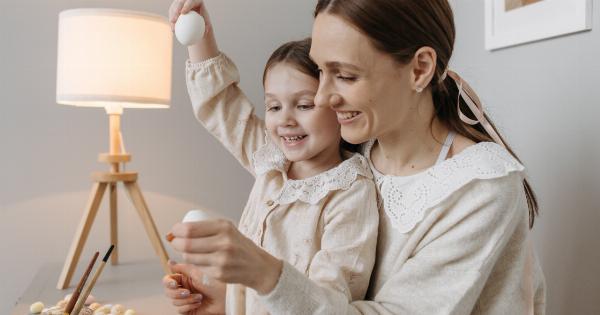In recent years, there has been a growing trend of women choosing to freeze their eggs as a means of preserving their fertility for future motherhood.
With advances in reproductive technology, women today have the option to delay motherhood while ensuring the quality of their eggs. But what are the odds of success when it comes to freezing eggs? Let’s take a closer look.
Understanding Egg Freezing
Egg freezing, also known as oocyte cryopreservation, is a process that involves extracting a woman’s eggs and freezing them for later use.
The eggs are retrieved from the ovaries, fertilized with sperm in a lab, and then implanted in the woman’s uterus, in the hopes of achieving a successful pregnancy.
Factors That Affect Egg Freezing Success
There are several factors that can impact the success of egg freezing, including:.
- Age: A woman’s age at the time of egg freezing is one of the most significant factors that can affect the success of the procedure. The younger the woman, the greater the chances of success, as younger eggs are generally of higher quality and have a higher chance of successfully implanting.
- Ovarian reserve: A woman’s ovarian reserve, or the number of eggs she has remaining in her ovaries, can also impact the success of egg freezing. Women with a higher ovarian reserve are more likely to have successful outcomes, as they are more likely to produce high-quality eggs during the retrieval process.
- Health conditions: Certain health conditions, such as endometriosis or polycystic ovary syndrome (PCOS), can impact the success of egg freezing. Women with these conditions may have more difficulty producing high-quality eggs, which can lower the chances of successful implantation.
Success Rates of Egg Freezing
The success rates of egg freezing can vary widely depending on a number of factors, including the woman’s age, health, and ovarian reserve.
According to the American Society for Reproductive Medicine (ASRM), the success rates of egg freezing are as follows:.
- For women under the age of 35, the success rate is around 30-60% per frozen egg.
- For women aged 35-37, the success rate drops to around 25-50% per frozen egg.
- For women aged 38-40, the success rate drops further to around 20-40% per frozen egg.
- For women over the age of 40, the success rate drops significantly to around 5-20% per frozen egg.
It’s important to note that these success rates are not a guarantee, as there are a number of factors that can impact the success of the implantation process, including the quality of the sperm used, the woman’s overall health, and the number of eggs that are frozen and later implanted.
Cost of Egg Freezing
Egg freezing is a costly procedure, with the average cost ranging from $5,000-$12,000 per cycle.
In addition to the cost of the actual procedure, women may also need to pay for medications, storage of the frozen eggs, and any additional procedures that may be necessary to achieve a successful pregnancy.
Is Egg Freezing Right for You?
If you’re considering egg freezing as a means of preserving your fertility, it’s important to talk to your doctor to understand the risks and benefits of the procedure.
Factors such as your age, overall health, and ovarian reserve can impact the success of the procedure, and it’s important to have a realistic understanding of your individual chances of success.
The Bottom Line
Egg freezing can be a valuable option for women who want to delay motherhood while ensuring the quality of their eggs.
While the success rates can vary widely depending on a number of factors, including age and ovarian reserve, the procedure can provide a greater level of reassurance and peace of mind for women who want to preserve their fertility for the future.


























